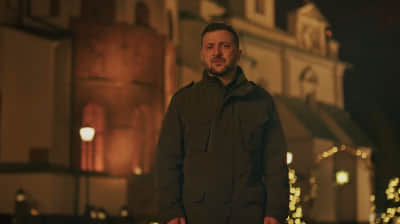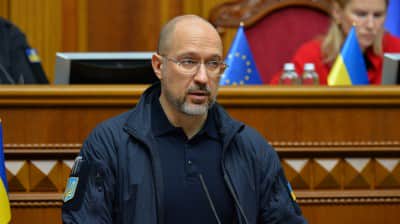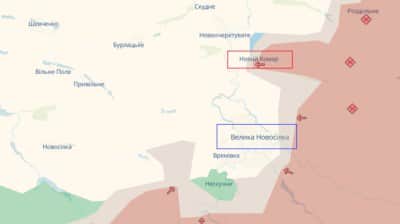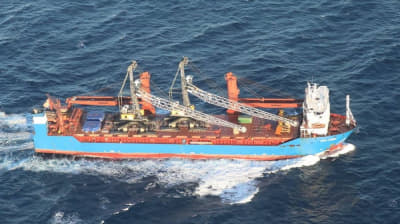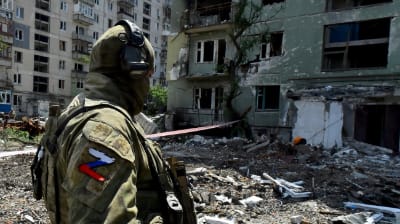Increasing momentum in Donetsk Oblast may indicate beginning of Russian summer offensive
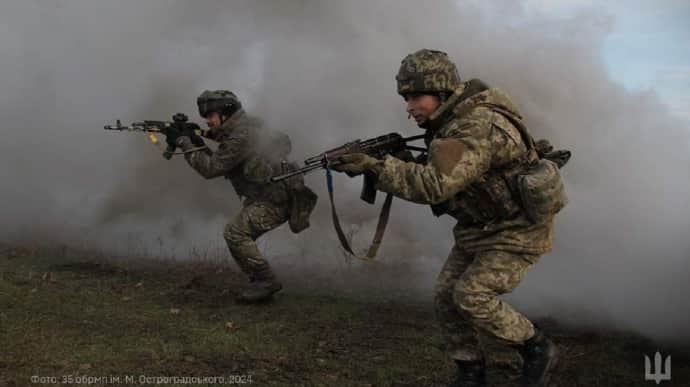
Russian troops are increasing the pace of their offensive operations in Donetsk Oblast while reducing the intensity of attacks in the north of Kharkiv Oblast. This may indicate preparations for a summer offensive, if not the start of one.
Source: Institute for the Study of War (ISW)
Details: The military analysts indicate that Russian offensive operations in Kharkiv Oblast are primarily aimed at holding and distracting Ukrainian forces to allow Russian troops to become more active in other parts of the frontline.
Russian troops increased the intensity of attacks on the Toretsk-Horlivka front on the night of 17-18 June and maintained a relatively high intensity of attacks in this area from 19 to 22 June, gaining several tactical victories in this area.
Russian troops were generally inactive on this section of the frontline throughout 2024, so their growing activity deserves attention.
In contrast, the pace of Russian offensive operations in the north of Kharkiv Oblast has dropped sharply in recent days, especially compared to mid-May this year.
ISW wrote that the Russian command has long believed that the offensive in Kharkiv Oblast was intended to lock up Ukrainian manpower and their limited supplies along the northern border to allow Russian forces to resume offensive operations in other more important areas of the theatre, particularly in Donetsk Oblast.
Ukrainian sources have confirmed that some Ukrainian forces redeployed units to the Kharkiv front from Donetsk Oblast, so Russian forces may use this perceived weakness in Ukrainian positions to intensify attacks, especially on the Toretsk-Horlivka front.
In addition, Russian forces have maintained a high intensity of shelling in the direction of Chasiv Yar and around Avdiivka after slowing down in Kharkiv Oblast, and they may soon intensify attacks in this area. This depends on whether the Russian commanders see the coming weeks as a favourable time to advance in these areas before Ukrainian forces redeploy their reserves back to Donetsk Oblast.
Ukrainian sources have warned that Russia will conduct a summer offensive, likely to be focused in Ukraine's east, following an offensive in the north designed to stretch Ukraine's limited assets. The recent activity in Donetsk Oblast may indicate preparations for such a summer offensive if it has not already begun.
To quote the ISW's Key Takeaways on 22 June:
- Russian forces appear to be intensifying the tempo of their offensive operations in Donetsk Oblast while decreasing the rate of attacks in northern Kharkiv Oblast — consistent with ISW's assessment that Russian offensive operations in Kharkiv Oblast are primarily intended to fix and distract Ukrainian forces in order to allow Russian forces to intensify elsewhere in the theatre.
- US policy continues to prohibit Ukrainian forces from striking legitimate military targets in Russian territory in range of Ukrainian HIMARS.
- Russian air defences will reduce the effectiveness of Ukrainian F-16s if the US does not allow Ukrainian forces to use ATACMS to destroy Russian air defence systems in Russian territory.
- The partial removal of the Russian sanctuary has already had a net positive effect, underscoring the powerful latent potential a larger policy change could achieve.
- Dutch Defence Minister Kajsa Ollongren announced on 21 June that the Netherlands and another unspecified country will supply Ukraine with a Patriot air defence system.
- Russian opposition outlet Vazhnye Istorii reported on a series of leadership changes within the Russian Federal Security Service's (FSB) Fifth Service, which reportedly specialises in collecting intelligence within Russia and the former Soviet Union.
- Western countries have reportedly provided Ukraine with roughly 800 million euros ($855.4 million) worth of Serbian-produced ammunition despite Serbian President Aleksandar Vučić's ongoing efforts to balance favour between Russia and the West.
- Satellite imagery confirmed that Ukrainian forces struck at least one Russian air defence training centre in Krasnodar Krai during recent strikes on 20-21 June.
- Select Russian milbloggers claimed that unnamed actors, implied to be Ukrainians, conducted a strike using ATACMS against Rostov Oblast, although ISW cannot independently confirm these reports.
- Russian forces recently advanced near Svatove, Chasiv Yar, and Avdiivka.
- Russian law enforcement and security agencies continue working with the Russian Ministry of Defence (MoD) to recruit those accused of criminal offences into the Russian military, likely as part of ongoing crypto-mobilisation efforts.
Support UP or become our patron!
